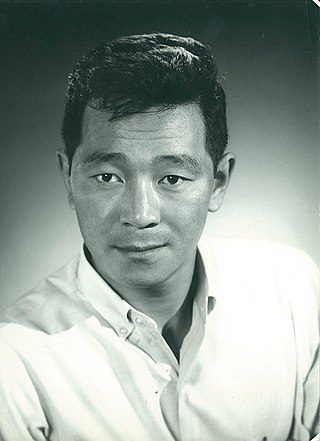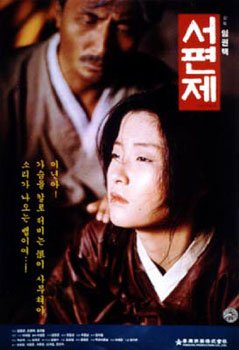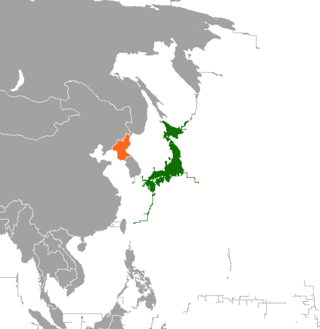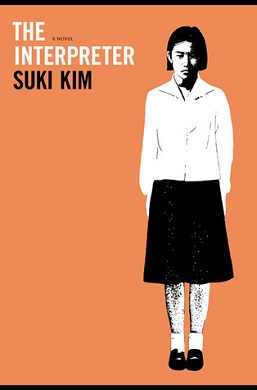Related Research Articles

Elizabeth Cochrane Seaman, better known by her pen name Nellie Bly, was an American journalist who was widely known for her record-breaking trip around the world in 72 days in emulation of Jules Verne's fictional character Phileas Fogg and an exposé in which she worked undercover to report on a mental institution from within. She pioneered her field and launched a new kind of investigative journalism.

Eknath Easwaran was an Indian-born spiritual teacher, author and translator and interpreter of Indian religious texts such as the Bhagavad Gita and the Upanishads.
The international adoption of South Korean children started around 1953 as a measure to take care of the large number of mixed children that became orphaned during and after the Korean War. It quickly evolved to include orphaned Korean children. Religious organizations in the United States, Australia, and many Western European nations slowly developed the apparatus that sustained international adoption as a socially integrated system.
Vortimer, also known as Saint Vortimer, is a figure in British tradition, a son of the 5th-century Britonnic ruler Vortigern. He is remembered for his fierce opposition to his father's Saxon allies. In Geoffrey of Monmouth's Historia Regum Britanniae, he overthrows his father and reigns as King of Britain for a brief period before his death restores Vortigern to power.
Patrice Lesley Newell is an Australian former model, television presenter turned author, and biodynamic farmer.

Richard Eun Kook Kim (1932–2009) was a Korean–American writer and professor of literature. He was the author of The Martyred (1964), The Innocent (1968), and Lost Names (1970), and many other works. He was a Guggenheim Fellow (1966) and was a recipient of a Fulbright grant. His most popular work is Lost Names, a fictional work based on his experience during the Japanese colonization of Korea.

Seopyeonje is a 1993 South Korean musical drama film directed by Im Kwon-taek, based on the eponymous novel by Yi Chong-jun. It is the first South Korean film to draw over one million audiences and has had significant influence in reviving popular interest in traditional Korean culture and pansori.

The Japan–North Korea Pyongyang Declaration was signed in 2002, and was the result of a systematic Japan–North Korea summit meeting. The aim of the declaration was to provide low-interest long term loans to North Korea as well as economic assistance, including humanitarian aid, in accordance with the moratorium of nuclear missile development which has been in place since 1999. The Japanese government hoped to learn the fate of Japanese citizens by North Korea which, prior to the declaration, was unacknowledged.
Dakpo Tashi Namgyal was a lineage holder of the Dagpo Kagyu lineage of Tibetan Buddhism. He was also trained in the Sakya lineage, and "was renowned as both a scholar and yogi."

Korean immigration to Mexico began in 1905. The first Korean migrant workers settled in Yucatán, while more recent migrants from South Korea often choose Mexico City as their destination. However, according to the embassy, it's estimated that 11,800 Korean nationals living in Mexico and 1,000,000 Mexicans of Korean descent.
James E. Falen is a professor emeritus of Russian at the University of Tennessee. He published a translation of Eugene Onegin by Alexander Pushkin in 1990 which was also influenced by Nabokov's translation, but preserved the Onegin stanzas (ISBN 0809316307). This translation is considered to be the most faithful one to Pushkin's spirit according to Russian critics and translators.

Kim Il Sung was a North Korean politician and revolutionary. He founded the Democratic People's Republic of Korea, commonly known as North Korea, which he led as Supreme Leader from its establishment in 1948 until his death in 1994. Afterwards, he was succeeded by his son Kim Jong Il and was declared Eternal President.
Glenn Durland Paige was an American political scientist. He was Professor Emeritus of political science at the University of Hawaiʻi and Chair of the Governing Council of the Center for Global Nonkilling. Paige is known for developing the concept of nonkilling, his studies on political leadership, and the study of international politics from the decision-making perspective with a case study of President Harry S. Truman's decision to involve the United States in the Korean War.

The Sea Village (Korean: 갯마을) is a 1965 South Korean film directed by Kim Soo-yong. It was chosen as Best Film at the Grand Bell Awards.
Kim Echlin is a Canadian novelist, translator, editor and teacher. She has a PhD in English literature for a thesis about the translation of the Ojibway Nanabush myths. Echlin has worked for CBC Television and several universities. She currently works as a creative writing instructor at the University of Toronto School for Continuing Studies. Her 2009 novel, The Disappeared, featured on the shortlist for the 2009 Scotiabank Giller Prize.
John Gollings, is an Australian architectural photographer working in the Asia Pacific region.

The Interpreter is a 2003 murder mystery novel by Suki Kim. A twenty-nine-year-old Korean American court interpreter, Suzy Park, is startled to discover during a case that her parents' homicide was not random.
Alexander Georgyevich Spirkin was a Soviet and Russian philosopher and psychologist. He was born in Saratov Governorate and graduated from the Moscow State Pedagogical University. In 1959 he received his doctorate in philosophy for a dissertation on the origin of consciousness.
Matthias Gross is a German sociologist and science studies scholar. He currently is Full Professor of Environmental Sociology at the University of Jena, and by joint appointment, at Helmholtz Centre for Environmental Research – UFZ in Leipzig, Germany.
Kim Gamble was an Australian illustrator of children's books. He is best known for the Tashi books, which have been translated into more than 20 languages and adapted for television.
References
- ↑ Italie, Hillel (November 12, 2000), "Fact or fiction? The downfall of some memoirs are the flaws in the memories", Chicago Tribune, archived from the original on September 13, 2016, retrieved September 29, 2011
- 1 2 Frase, Brigitte (May 17, 2000), "'Ten Thousand Sorrows: The Extraordinary Journey of a Korean War Orphan' by Elizabeth Kim: An immigrant's brutal and disturbing memoir of abuse at the hands of fundamentalist parents and a sadistic husband", Salon, archived from the original on January 30, 2011, retrieved September 28, 2011
- ↑ Lee, Margaret Juhae (December 25, 2000), "Korea's Fallout", The Nation, OCLC 203159788 , retrieved September 26, 2011
- ↑ Author Elizabeth Kim on being a Korean War Orphan, CNN, June 12, 2000, retrieved September 29, 2011
- ↑ Marech, Rona (October 6, 2000), "Escaping Her Past: San Rafael author Elizabeth Kim, a Korean War orphan raised by fundamentalist parents in California, tells of her painful upbringing in a haunting memoir", San Francisco Chronicle, retrieved September 29, 2011
- ↑ Behr, Andrea (May 7, 2000), "A Korean War Orphan Lives to Tell Her Story: A young girl survives a hellish situation in her native land, only to face more horrors in America", San Francisco Chronicle, archived from the original on July 8, 2012, retrieved September 29, 2011
- 1 2 Italie, Hillel (October 27, 2000), "Book Criticized for Factual Errors", Associated Press, retrieved November 14, 2022
- ↑ Davis, Rocío G. (2007), Begin here: reading Asian North American autobiographies of childhood, University of Hawaii Press, p. 197, ISBN 978-0-8248-3092-2
- ↑ Kim, Sun-jung (May 29, 2005), "The Remarkable B.R. Myers Revealed", JoongAng Ilbo , archived from the original on July 17, 2012, retrieved September 29, 2011
{{citation}}: CS1 maint: unfit URL (link) - ↑ Koji Nnamdi (2000), Elizabeth Kim: "Ten Thousand Sorrows: The Extraordinary Journey of a Korean War Orphan", Washington, D.C.: WAMU, OCLC 426221805
- ↑ Seiwoong Oh (2001), "Book Reviews — Ten Thousand Sorrows: The Extraordinary Journey of a Korean War Orphan", Western American Literature, 36 (2), ISSN 0043-3462, OCLC 94147883
- ↑ Susan Soon-Keum Cox (2001), "Ten Thousand Sorrows, by Elizabeth Kim", Adoption Quarterly, 4 (3): 87–93, doi:10.1300/J145v04n03_06, ISSN 1092-6755, OCLC 207266672, S2CID 218645475
- ↑ Tracy Dianne Wood (2008), "Chapter 2", Korean American literature: literary orphans and the legacy of Han, Ph.D. dissertation, University of California, Riverside, ISBN 978-0-549-52376-5, OCLC 744022321